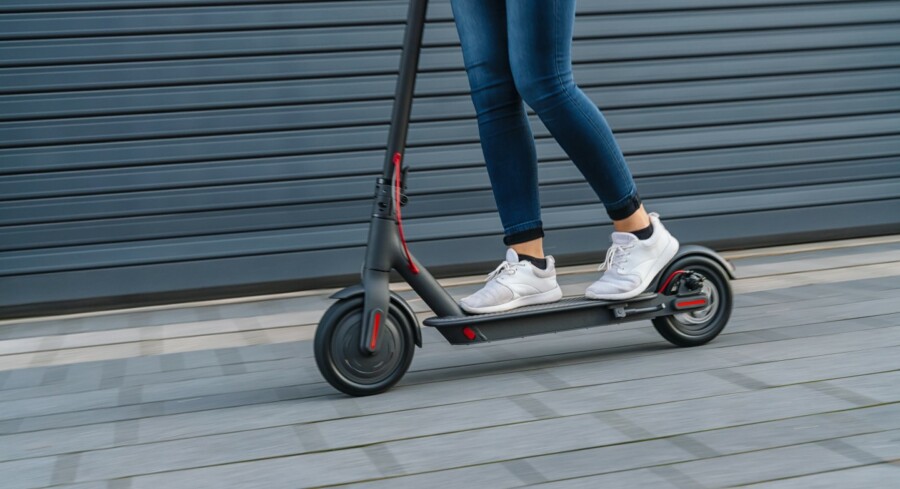Finger Amputation Injuries: Claiming compensation
I have acted for numerous people, both adults and children, who have suffered injuries involving amputation of one or more fingers. The consequences of finger amputation can be catastrophic and life-changing for the injured person.
Within this blog I will look at the ways in which finger amputation can occur, the impact it can have on the victims, the losses that they can potentially claim for and the evidence that they will need in order to prove the claim.
How finger amputation can occur
We all naturally have 14 bones within the fingers of each hand; three bones in each finger and two in the thumb. These bones are otherwise known as phalanges or phalanx bones. The muscles and tendons within our fingers help them move almost completely independently of each other. The skin of the fingertips has a very high concentration of touch and heat receptors.
Having so many bones, muscles and nerves within our fingers is what makes them so nimble and useful. Unfortunately, their usefulness and their relatively small size make them vulnerable to injury and losing even part of a finger can have disastrous consequences. Amputation may occur during the incident itself, or surgeons may decide to remove the finger or fingers afterwards, for example following a severe crush injury.
The individuals that I have represented lost their fingers in a variety of different ways. A noticeable proportion of incidents arise out of workplace accidents, frequently involving cutting machinery or heavy equipment. All too regularly, employers did not take adequate safety measures to protect their employees from injury. Common examples include risk assessments not being completed, appropriate training not being given or safety equipment not being provided.
Finger amputation can also occur in public places, particularly involving hinged objects such as doors or heavy lids. Those with control over premises should carry out the necessary safety checks to ensure that visitors are reasonably safe. Children are particularly vulnerable in public places. Their natural curiosity and playfulness can result in an injury, especially where the necessary child safety measures have not been implemented or they are not properly supervised.
The person or organisation at fault may allege that the injured person caused or contributed to the accident in some way, for example by not taking adequate care for their own safely. If these accusations are proven, this would ultimately have the effect of reducing the level of compensation recovered. We call this ‘contributory negligence’.
The impact that finger amputation can have
Following the whole or partial amputation of one or more fingers, the amputee will often suffer with pain, increased sensitivity (particularly to hot and cold temperatures), altered sensation and restriction of movement. These symptoms can result in the injured person being unable to work for an extended period of time. Both manual and desk-based work can sometimes require the full use of both hands and the victim may subsequently require adaptations to be made in their workplace. In the worst cases, they may even need to change their job role altogether.
Many of us take for granted how often we use all our fingers for everyday tasks. Simple tasks such as opening doors, preparing food, using mobile phones and carrying out household chores can become very difficult following amputation.
As well as the physical effects, finger amputation can have a huge psychological impact on the injured person. Victims will often have a difficult time adjusting to their reduced physical capabilities, the pain levels and the appearance of their hand. Something as simple as a handshake can make an injured person feel self conscious.
The losses that can potentially be claimed for
A variety of losses can be claimed as part of the personal injury claim. Those who lose their fingers will frequently suffer a loss of earnings if out of work after the accident. After they return to work they may only be able to work at a reduced capacity and so will look to claim for a reduction in earnings going forward. Even where the amputee returns to earning the same amount of money as they were pre-accident, a separate award may be appropriate so as to acknowledge their disadvantage on the open labour market were they to find themselves looking for another job.
Compensation can also be recovered for the care and assistance that the injured person was provided with by reason of the accident.
Treatment costs should also be investigated. The victim may require physiotherapy or perhaps even further surgery. In addition to physical treatment, psychological therapy may be required to help the amputee come to terms with what has happened.
One loss that should certainly be looked into is the cost of prosthetics fingers. These can have a huge impact on a claim’s overall value. Some prosthetics are more hardwearing, to be used day-to-day. Others are made of more delicate material and are very realistic. There are some incredible prosthetic fingers on the market that match skin tone and even include realistic fingernails and hair. This really can boost a victim’s self confidence. Depending on the level of amputation, prosthetics may be able to provide some functional benefit, as well as a reduction in sensitivity and also a visual improvement. The prosthetics will require replacement every few years or so, depending on how often they are used. This will need to be factored into the claim’s overall value.
In addition to the above, other potential losses to be claimed might include medication, travel expenses and equipment costs.
The evidence that will be required to prove the claim
The burden will always be on the victim to prove the full extent of his or her injuries and their financial losses, before they will be compensated.
Those who believe that they may have a claim for compensation following a full or partial finger amputation injury, should contact a solicitor with experience in the handling this type of case. Choosing the right solicitor could make a huge difference in how much compensation is eventually recovered.
Solicitors who have handled finger amputation claims will appreciate the impact that the injury can have. They will also have access to the best experts who can provide helpful reports on the injured person’s condition, what the future will hold and their long term needs.
In order to prove the full extent of the injury and the losses, medical reports should be obtained from a hand surgeon and also a psychiatrist. In more serious cases, the opinion of an occupational therapist would be useful to comment on the injured person’s level of functioning and make recommendations as to equipment that they would benefit from. A report from a prosthetics expert should also be obtained. As mentioned above, the evidence from this expert can increase the claim’s potential value dramatically.
Depending on how the incident happened, if liability is not admitted, it may also be necessary to obtain a report from a Health & Safety expert who can comment on who was at fault for the accident. Witness statements from those who were present when the incident occurred can also be a helpful in establishing blame. Statements can also be taken from friends and family members in support of the care and assistance claim.
In addition to expert and witness evidence, documents evidencing the victim’s financial losses are vital in ensuring that these are recovered in full. Such documents will include pay slips, invoices and receipts.
A recent finger amputation claim example
I recently acted for a gentleman who was employed by the Defendant company as a crane operator when he had an accident at work. My client’s employer asked him and his colleagues to dismantle a crane, which needed to be done on the ground. Due to an oversight on the employer’s part, there was not enough space to carry out the dismantling of the crane on the ground, so it had to be carried out in the air, using another crane for support.
My client was asked to stand on top of a container to wriggle a section of the lattice free, whilst it was being supported by another crane. Due to an imbalance in the section he was holding, when it came free it popped up and back down again crushing the tips of my client’s middle, ring and little fingers of his dominant right hand. He later had the tips of his three fingers amputated in hospital.
I submitted a claim against the employer for their failure to take adequate care of the safety of my client and for exposing him to a foreseeable risk of injury. Whilst the employer admitted some degree of fault, they argued that my client contributed to his injury by placing his hand in an area where there was a risk of danger. I maintained my client’s position, in that the crane should not had been dismantled whilst in the air and that the incident could have been entirely avoided if the employer had carried out an appropriate risk assessment.
I arranged for my client to be examined by a hand surgeon, a psychiatrist and an occupational therapist to assess his injuries, his current and future needs and to assist us in valuing his claim. Whilst my client was able to return to work, he had ongoing issues with movement, grip and sensation in his hand. As a result, I successfully argued that my client was likely to be disadvantaged on the open labour market because of his injuries. He was also very self conscious about his hand’s appearance. I therefore obtained a report from a prosthetic expert, who provided us with the cost of silicon prosthetic fingers for my client. This was factored into the value of his claim.
I subsequently negotiated a final settlement of £210,000 for my client, which he was very happy with.
Ben Pepper is a Solicitor at Bolt Burdon Kemp specialising in Accident claims. If you would like advice about making a claim on behalf of a loved one, contact him free of charge and in confidence on 020 7288 4815 or at benpepper@boltburdonkemp.co.uk. Alternatively, you may complete this form and one of the solicitors in the Accident Claims team will contact you. You can find out more about the team.









